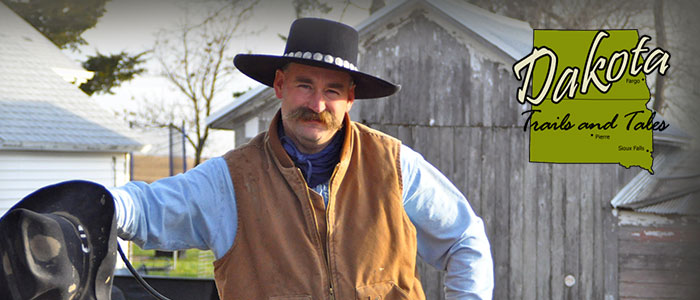A good friend of mine, Trent Loos, a 6th generation United States farmer, shared this with me several years ago and I wanted to pass it along to you. Mr. Loos is: entertaining, passionate about his causes, somewhat controversial, but always informative and educational. Trent has several radio shows; here’s a link for you to get to know him: http://www.rodeoattitude.com/loostales/on-the-air/dakota-trails-and-tails/
You may be wondering what the hec a farmer from Nebraska and a coffee roaster from the plains of North Dakota have in common; education. It’s our mission to make sure you are armed with enough information to make you an informed consumer. In this information age with social media and knowledge at our finger tips, it makes answering questions easy. But, what if you don’t know there are questions to ask? We’ve all heard about controversial issues in the media; one that sticks out in my mind is don’t drink unfiltered coffee. The public went nuts and passed the word along; without ever questioning why. I will share the answer to this with you in another blog.
Here’s a thought provoker and something that will definitely make you think. Try not to read forward so you can absorb all of it. I would love to hear your thoughts.
Ignorance is the real danger
It is truly amazing that we as humans can live to be 100 years old if you consider that most of us voluntarily consume pesticides on a daily basis. Yes, I have just learned that we have more pesticides in our environment than I ever realized. In fact, the latest pesticide of concern is not produced here in the United States but it is imported. This pesticide is used to protect the tropical plants from pests and, right behind oil, it is the second most imported item in the United States. In fact, it is reported that one fifth of the world’s production of this pesticide is consumed by American consumers.
The United States medical community has been looking into the effects of this pesticide on youth development. By the way, the medical name is trimethylzanthine and, in it’s purest form, it is a white crystalline powder. Some of the leading medical authorities in the country such as Mary Rimsca, M.D., director of health for Arizona State University and a spokesperson for the American Academy of Pediatrics, have advised parents that when this pesticide is consumed by kids it can cause sleep problems, irritability, and stomach upset.
This pesticide can only be found naturally in the United States on the islands of Hawaii, yet each year it is imported into every single state and kids are consuming it on a daily basis. You might be curious to know which foods commonly contain this pesticide and that list would include tea, chocolate, soft drinks and coffee. Perhaps you are more familiar with this pesticide by its street name – caffeine.
I hope I made my case by creating fear and pandemonium about this unknown pesticide. When you finally learned that I was referring to caffeine, you probably felt comforted. Fear of the unknown is the driver behind many emotions and their related actions in this country. When you don’t know up front what you dealing with, your mind wanders off to the worst-case scenario. Or perhaps your mind is led there by someone with an ulterior motive. Look at what caffeine actually accomplishes in nature.
Caffeine is part of the plant’s ‘chemical weaponry’ to defend itself against predators and competitors. Plants cannot defend themselves with limbs or run away from danger. Instead, the plants synthesize chemicals that are toxic to certain life forms. Caffeine is such a chemical; it has potent antibiotic and anti-fungal powers and causes sterility in several insects. Caffeine also permeates the soil surrounding the plants by the accumulation of fallen leaves and berries, thus inhibiting the growth of competing plants.
However, in doing this, the caffeine plant ultimately kills itself as well. Over many years, the accumulation of caffeine in the soil becomes so great that the toxicity level is high enough to harm the parent plant. It is this toxicity that contributes to the degeneration of coffee plantations when their parent plants are between ten and twenty-five years of age. With our lack of a real understanding of nature at both the legislative and regulatory levels, we could never grow coffee here on the mainland because we would outlaw the plants due to their production of toxic chemicals. We sure do consume more than our fair share of caffeinated beverages and foods though don’t we?
This whole concept of persuasion via scare tactics reminds me of a little project I conducted last fall at the Farm Progress Show in Decatur, IL. I had an official looking young lady walk up to 47 different individuals and ask them to sign a petition requesting that the EPA ban the dangerous chemical Dihydrogen Monoxide. She told them that this chemical has been found in our rivers and streams and that all tested baby food contained this chemical. She explained that Dihydrogen Monoxide has been know to cause excessive urination, all nuclear power plants are using it and most importantly of all, Michael Vick’s dogs consumed this chemical during training for fights. As it turned out, 40 of 47 individuals at the Farm Progress Show actually signed our mock petition to ban Dihodrogen Monoxide, H2O! Yes, people thought they wanted the EPA to ban water.
Humans, plants and animals all benefit from chemicals and most, in moderation, are not a bad thing. The lack of our understanding of how all of these chemicals can benefit our lives is called ignorance. There is a tremendous body of evidence suggesting that it is actually ignorance and not chemicals that truly presents the greatest danger to our well-being! Ponder that over your pesticide-laden cup of coffee!
Drink Fresh ~ Cheers

